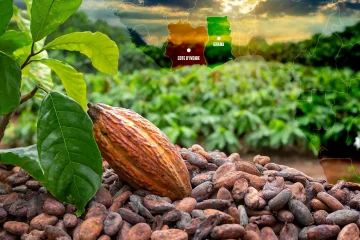WHEN Gebisa Ejeta was awarded the National Medal of Science in October by US President Joe Biden – the highest state honour attainable by scientists in the United States – he was being recognised not only for his contribution to science but also to a subject that is of increasing importance to Africa: the study of Africa’s ancient grains.
“There’s nothing more noble to serving humanity, nothing more important than helping people feed themselves,” Ejeta stated in a televised interview distributed by Purdue University.
Ejeta, who holds the position of Distinguished Professor of Plant Breeding and Genetics and International Agriculture at Purdue University, also serves as the Executive Director of the Purdue Center for Global Food Security and Purdue University Presidential Fellow for Food Security and Sustainable Global Development.
Awarded for his “outstanding contributions to the science of plant genetics,” Ejeta said he considers what he does for a living a blessing, as he can significantly impact humanity while receiving recognition as a “global citizen.”
Ejeta’s groundbreaking work focuses on sorghum, an ancient grain with wide-ranging significance as a food source for both humans and livestock.
In 2009, he received the World Food Prize – considered the Nobel Prize of food and agriculture – for developing a sorghum hybrid that is resistant to both drought and striga, a common parasitic weed in Africa.
Sorghum ranks as the fifth most important cereal crop globally, after maize, wheat, rice, and barley. In Africa, it is the second-most important cereal after maize and is often critical in countries vulnerable to drought.
In Ethiopia, sorghum is used in the preparation of traditional Ethiopian foods and beverages like tella, areki, and injera.
Ejeta, who has also been awarded Ethiopia’s National Hero Award – the highest national honour bestowed on Ethiopian citizens – has regularly said he is committed to using science to alleviate global challenges such as hunger.
According to Humphrey Agevi, a lecturer and climate change specialist at Masinde Muliro University of Science and Technology (MMUST) in Kenya, the US award is a reminder of the increasing role that Africa is playing in addressing global problems.
“It also shows we are capable of contributing to the Sustainable Development Goals (SDGs) and the African Union Agenda 2063,” he said.
Ejeta joins several prominent scientists recently recognised for their work.
South Africa’s Shabir Madhi was recently awarded the Commander of the Most Excellent Order of the British Empire (CBE) by King Charles III for his work as a vaccinologist, while Charles Rotimi, a Beninese scholar, was in September awarded the New York Academy of Medicine honours medal for his distinguished contributions to genetic epidemiology and human genetics. Ugandan Martin Origa was recently unveiled as the awardee of the prestigious Lee-Jong-Wook fellowship run by South Korea-based Yonsei University, for his research on cancer of the female reproductive system.














